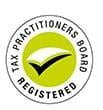New depreciation rules after 9 May 2017
Investors who purchase a new property will be able to continue to claim depreciation as they were previously. These changes will affect the total deductions outlined within the results table of this calculator for properties purchased after this date.
1. If you acquire a second-hand residential property from 10 May 2017, which contains ‘previously used’ depreciating assets, you will no longer be able to claim depreciation on those assets. This refers to the plant and equipment portion of a depreciation schedule, including:
• Ovens
• Dishwashers
• Lights
• Air-conditioners
• Televisions
• Carpets
• Lounge suites
• Blinds
• Common property plant and equipment items.
2. However, the building allowance, or claims on the structure of the building, has not changed at all. You will still need a depreciation schedule to calculate these deductions, which typically accounts for 85 per cent of the overall construction cost. The structure includes things like brickwork and concrete so there’s no change to that.
3. Acquirers of brand-new property will carry on claiming depreciation in exactly the same way as they have done so to-date – for both plant and equipment and structure. This is great news for the property industry, because a lot of developers rely on depreciation as part of their marketing strategy to attract investors. The government resisted making changes to depreciation on brand-new property because it did not want to halt construction, which would have impacted upon the supply of new property. A downturn in the construction industry would also have a knock-on effect – if tradies are out of work, they aren’t paying tax!
4. If you renovate a house while living in it, then sell the property to an investor, the assets will be deemed to have been previously used and the new owner cannot claim depreciation on the plant and equipment.
5. The proposed changes do not apply if you buy the property in a corporate tax entity, super fund (note self-managed super funds do not apply here) or a large unit trust. In other words, you can still buy a second-hand property in a company name and claim depreciation on it. You can buy a second-hand property in a super fund – as long as it’s a large one – and a large trust can buy a property as long as it has 300 members
or more, and claim depreciation on that property.
6. The proposed changes only relate to residential property. Commercial, industrial, retail and other non-residential properties are not affected, so you can still buy a second-hand office or similar and continue to claim the second-hand carpet, exactly as you could before. You can’t do this for residential property, as I’ve explained above.
7. If you engage a builder to build a brand-new house, or do the work yourself and it remains an investment property, you will still be able to claim depreciation on both the structure and the plant and equipment items. This is because it’s brand new, and was brand new when you put in that oven. Therefore, you can still claim it because the costs are known.
8. If you engage a builder to renovate a property – or you do the work yourself – and it is also being used as an investment property, you will still be able to claim depreciation on it when you have finished the renovations. As above, this is because the assets you install are brand new, therefore you can still claim. But if you bought a property renovated by someone else and they lived in it for six months or a year and then sold it – you can’t claim depreciation on the oven and dishwasher, etc. in the future, because they have now been previously used. See the difference?
9. While investors purchasing second-hand property can now no longer claim depreciation on the existing plant and equipment, they will have the benefit of paying less capital gains tax when they sell the property. How? Well, when they replace or remove an item of plant & equipment they would have been able to claim in depreciation under the previous legislation, the opening value of the asset can be claimed as a capital loss.


































